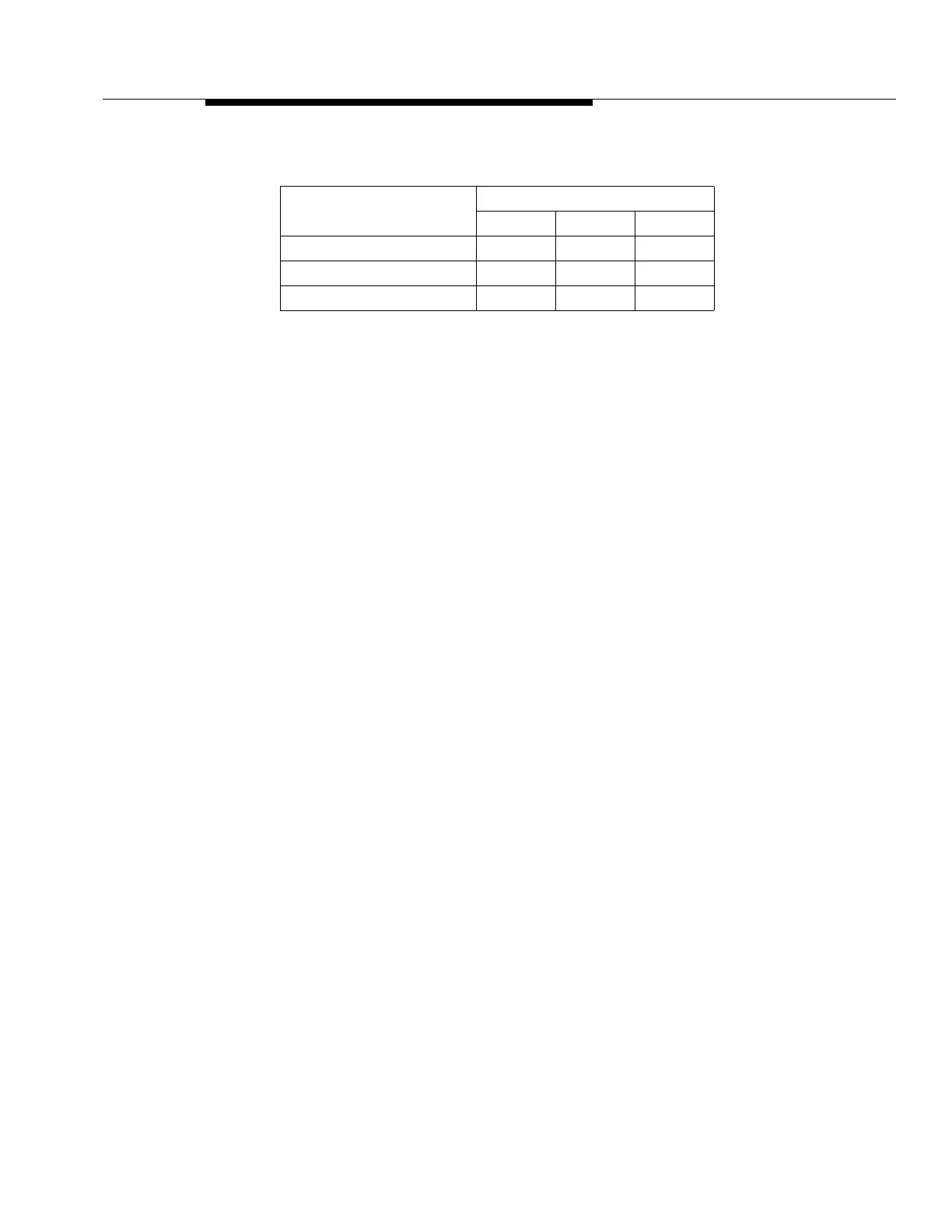363-206-305
Maintenance Description
Issue 3 June 2000
9-35
Table 9-1. DS3 Performance Monitoring Enabling
DS3 Path
9
CV-P Coding Violations
9
CV-P coding violations are a count of the number of P-bit, adjusted F&M bit, or
near-end and far-end C-bit parity errors in the DS3 signal received from the fiber
and the DSX-3. To detect degradation of the signal, these errors are counted and
thresholded independently for all DS3 interfaces provisioned in VM or VMR mode.
By provisioning all NEs in the DS3 path to the VM mode, CV-Ps can be used as a
DS3 path performance parameter when the P-bit option is selected. When the
F&M-bit or C-bit option is selected, NEs could be provisioned in VMR or VM mode
(see Table 9-2).
Severely Errored Frame Seconds (SEFS)
9
SESF are a count of the number of seconds during which an OOF or AIS
condition exists for a DS3 signal received from the fiber or the DSX-3, or during an
unprotected DS3 circuit pack failure. SEFSs are counted and thresholded
independently for all DS3 interfaces provisioned in VM or VMR mode.
Errored Seconds (ES-P)
9
An "errored second" is a second in which one or more DS3 P-bit, adjusted F&M-
bit, or near-end and far-end C-bit coding violations are detected. ES are not
counted during UAS. ES are counted and thresholded independently for each
DS3 path terminated by the system.
Severely Errored Seconds (SES-P)
9
A "severely errored second" is a second in which 44 or more DS3 P-bit, adjusted
F&M-bit, or near-end and far-end C-bit coding violations are detected. SES-P are
not counted during UAS. SES are counted and thresholded independently for
each DS3 path terminated by the system.
Unavailable Seconds (UAS-P)
9
An "unavailable second" is a second during which the DS3 path is "unavailable." A
DS3 path is considered "unavailable" from the beginning of X consecutive SES
DS3 Port State
Mode
VMR VM CC
IS (In Service) Yes Yes No
AUTO No No No
NMON (Not Monitored) Yes Yes No

